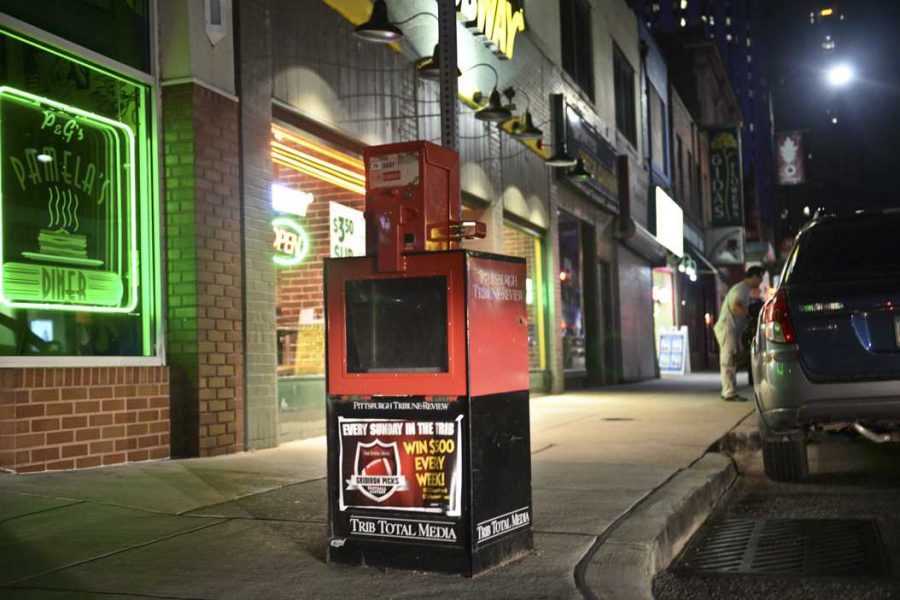With a Donald Trump presidency just months away, the media world is fighting to win back the trust readers have abandoned.
Which means that in a world full of fake news and unverified fluff masquerading as information, there has never been a larger need for young adults to learn how to most accurately inform their communities.
But making quality contributions requires an understanding of reporting and editorial ethics and there are currently few paths to acquire that knowledge on Pitt’s campus. It’s time the University expand its nonfiction English writing track into a full journalism major and show that a free, informed press is something worth valuing.
We know, it’s shocking that the student newspaper would push for a serious journalism program — but this is more about the future of the profession than the desires of our individual staff members.
Most universities offer dedicated journalism programs — including Pitt Johnstown — but in 2009, Pitt merged the journalism track with the creative nonfiction track to create just the nonfiction writing track. Now, students can major in communication and take classes about the media or enroll as an English major with a nonfiction focus. The latter option provides students with some great opportunities to practice journalistic writing styles, but there is no stable path to learn the complexities of functioning as a reporter in the working world.
Now that the University is bringing in more staunch journalists, such as Pulitzer Prize nominee Doug Swanson and Patrick Doyle, the former editor of Boston Magazine, Pitt should make an effort to create a more focused journalism program.
Which isn’t to say there aren’t professors who have been trying to maintain the journalism side of the nonfiction track since 2010. News advisor to The Pitt News Harry Kloman, a writer for Pittsburgh City Paper, already teaches an intro journalism course and a review writing course. Maggie Jones, who writes for New York Magazine, was a finalist for a National Magazine Award and was a 2012 Nieman Fellow at Harvard University. She teaches an intro to journalism and nonfiction course as well, plus topics classes in nonfiction.
Former Washington Post writer Cindy Skrzycki teaches a “Journalism Bootcamp” course, but beyond that class, there are no skills-based courses that teach students about bias and how newspapers actually function. Plus, because students in the writing track don’t need to take strict journalism courses, professors who teach these classes have to promote their classes every single year to draw a turn out.
Pitt’s writing department has also committed funds to support journalism projects such as Longform, a site devoted to aggregating and highlighting the best journalism writing around the country. This is a great boost for writers trying to earn attention for their hard work. Yet, the people paying to go here have few opportunities to learn the underpinnings of journalism while in the classroom.
We need to treat reporting as the professional trade it is. This is becoming a larger problem as so much of the public demonstrates media illiteracy. This election season has made it clear just how much the American public has lost its understanding of the way news outlets work.
People don’t understand that editorials like this one don’t reflect biased reporting in news stories or that topics from decades ago don’t appear in publications again unless newsworthy developments arise. Disinformation is rampant — as evidenced by the egregious amount of fake news on social media — and the only way to fight it is to provide ethical counterbalances.
Moreover, as we enter an era that’s going to need a lot of fact-checkers and watch dogs, news outlets are in desperate need of well-trained journalists. Despite providing a platform for young writers, institutions rampant on college campuses like The Odyssey and The Tab aren’t offering that training.
At The Pitt News, we do our best to educate those interested in the field and require no prior experience to join the organization. But it would be beneficial if students had somewhere to turn for developing basic skill sets instead of being thrown into the tumult of a daily newspaper with little to no preparation.



